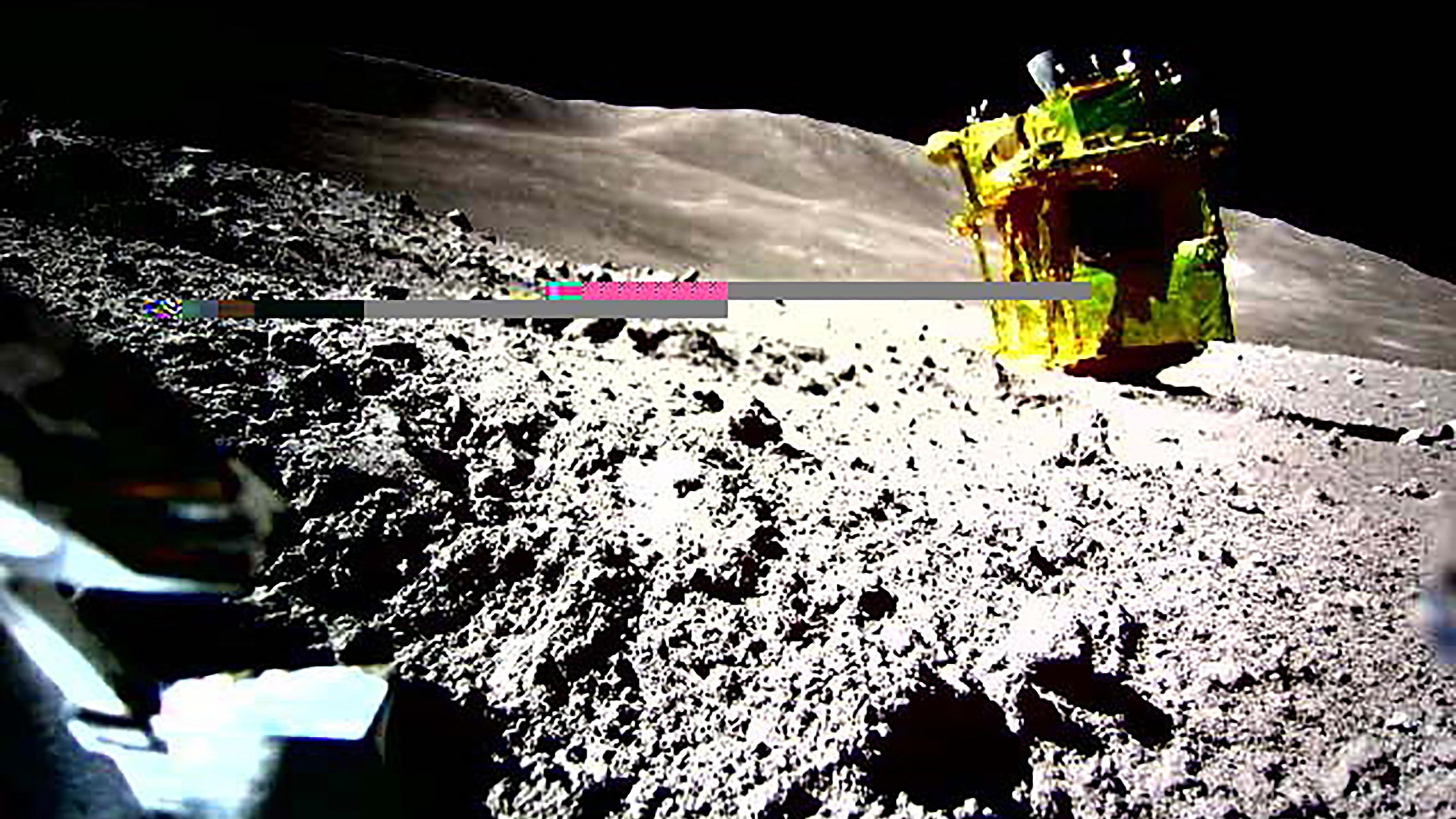 This handout photo released on Jan 25, 2024 from the Japan Aerospace Exploration Agency and credited to JAXA, Takara Tomy, Sony Group Corporation and Doshisha University shows an image of the lunar surface taken and transmitted by LEV-2 "SORA-Q" the transformable lunar surface robot "SORA-Q" (operation verification model), installed on the private company's lunar module for the Smart Lander for Investigating Moon (SLIM) mission, after landing on the Moon on Jan 20. (PHOTO / AFP)
This handout photo released on Jan 25, 2024 from the Japan Aerospace Exploration Agency and credited to JAXA, Takara Tomy, Sony Group Corporation and Doshisha University shows an image of the lunar surface taken and transmitted by LEV-2 "SORA-Q" the transformable lunar surface robot "SORA-Q" (operation verification model), installed on the private company's lunar module for the Smart Lander for Investigating Moon (SLIM) mission, after landing on the Moon on Jan 20. (PHOTO / AFP)
TOKYO - Japan's lunar probe has re-entered a dormant state and suspended activities as it reached sunset, rendering solar power generation unavailable, the country's space agency said on Thursday.
The planned activities for the Smart Lander for Investigating Moon, which made Japan the world's fifth lunar landing country, concluded on Wednesday, the Japan Aerospace Exploration Agency said.
The rocket carrying SLIM was launched on Sept 7 from the Tanegashima Space Center in southwestern Japan, in the country's third attempt at a lunar landing
The JAXA said it is expected to make operational attempts again in mid-February when sunlight reaches the solar panels, admitting the uncertainty whether SLIM, designed to withstand extremely cold conditions, will restart.
SLIM, dubbed the "moon sniper," landed on the moon at 12:20 am local time on Jan. 20, and was later confirmed to have achieved a pinpoint landing with an unprecedented precision of less than 100 meters from intended targets, as opposed to conventional landers that often have an accuracy of within several kilometers, according to the JAXA.
ALSO READ: JAXA: Japan successfully put lunar probe into orbit
As its solar cells were not generating electricity, the lander, some 2.4 meters tall and weighing about 200 kg excluding fuel, was switched off at 2:57 am on Jan 22 after working on backup batteries, but it restored power and started functioning on Monday.
The rocket carrying SLIM was launched on Sept 7 from the Tanegashima Space Center in southwestern Japan, in the country's third attempt at a lunar landing.


